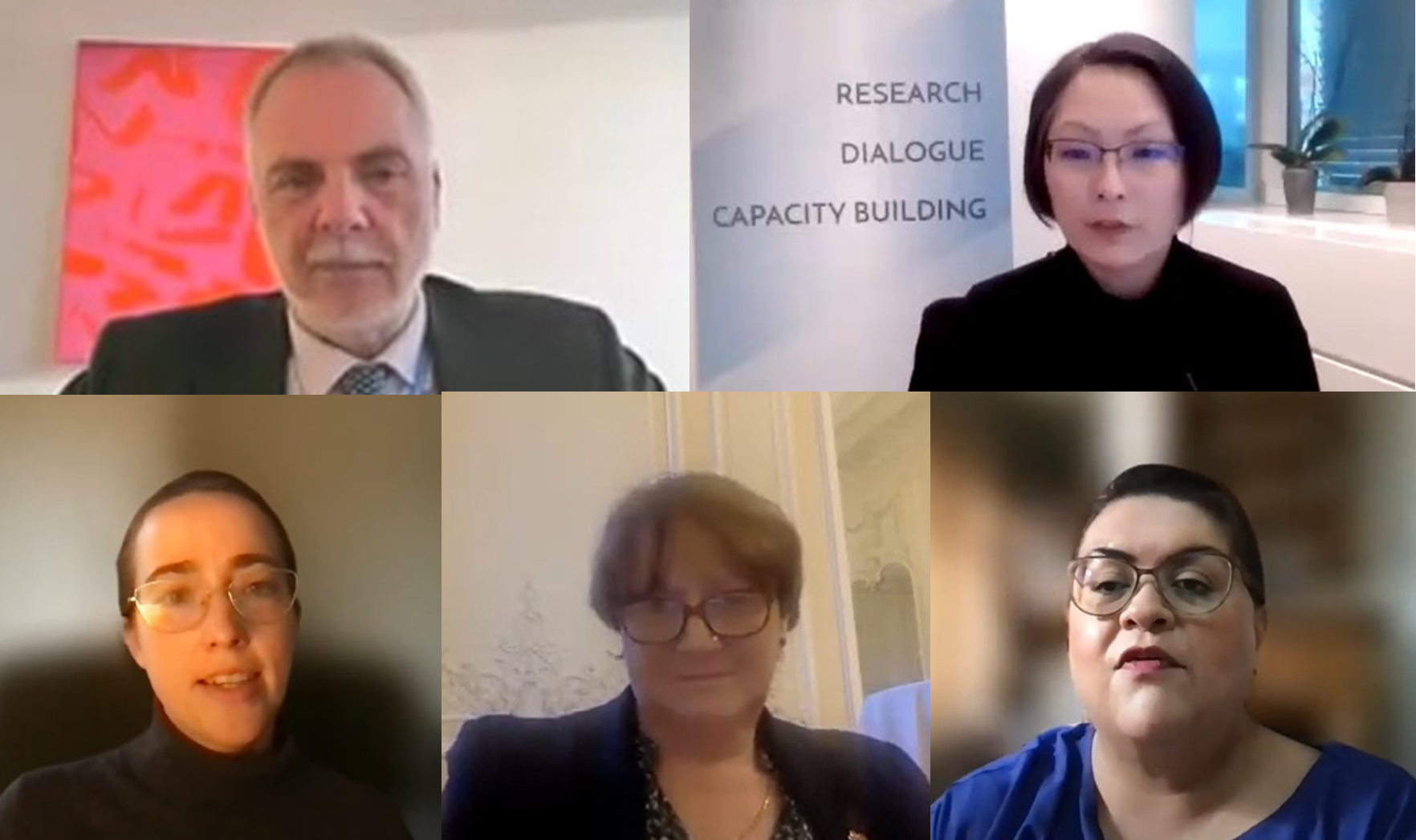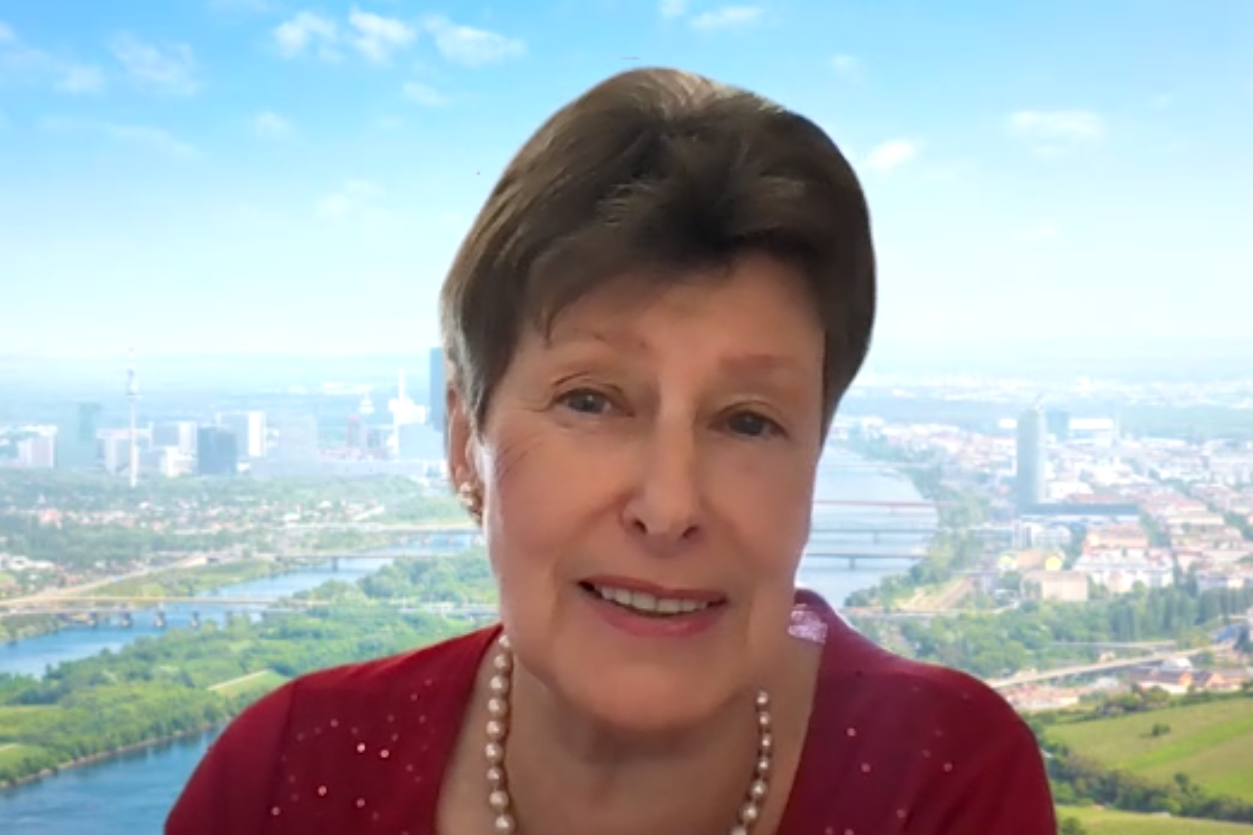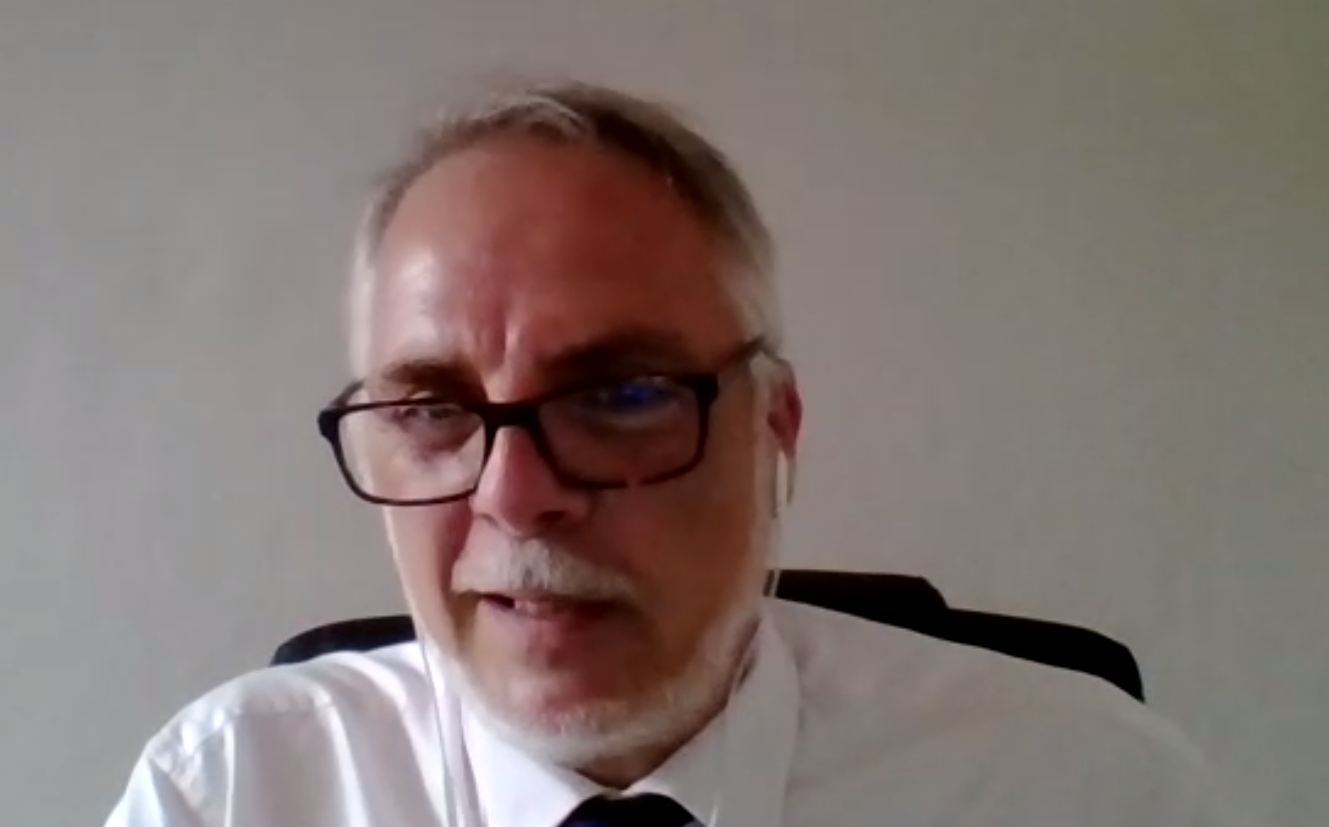
On 21 June 2021, the VCDNP hosted a virtual book launch of The Treaty Prohibiting Nuclear Weapons: How It Was Achieved and Why It Matters, written by Ambassador Alexander Kmentt, Director of the Disarmament, Arms Control and Non-Proliferation Department at the Austrian Ministry for European and International Affairs. Ambassador Kmentt provided an overview of his book, its main findings and messages and discussed the rationale for writing it. He explained that part of the motivation for writing the book was the need to tell the insider story of the humanitarian initiative and the negotiations of the Treaty on the Prohibition of Nuclear Weapons (TPNW), particularly from the perspective of a diplomat, as the role of States had been relatively underrepresented in the accounts of these developments. His presentation was followed by comments from Ms. Angela Kane, Senior Fellow at the VCDNP and former United Nations High Representative for Disarmament Affairs. VCDNP Executive Director Ms. Elena Sokova moderated the event.
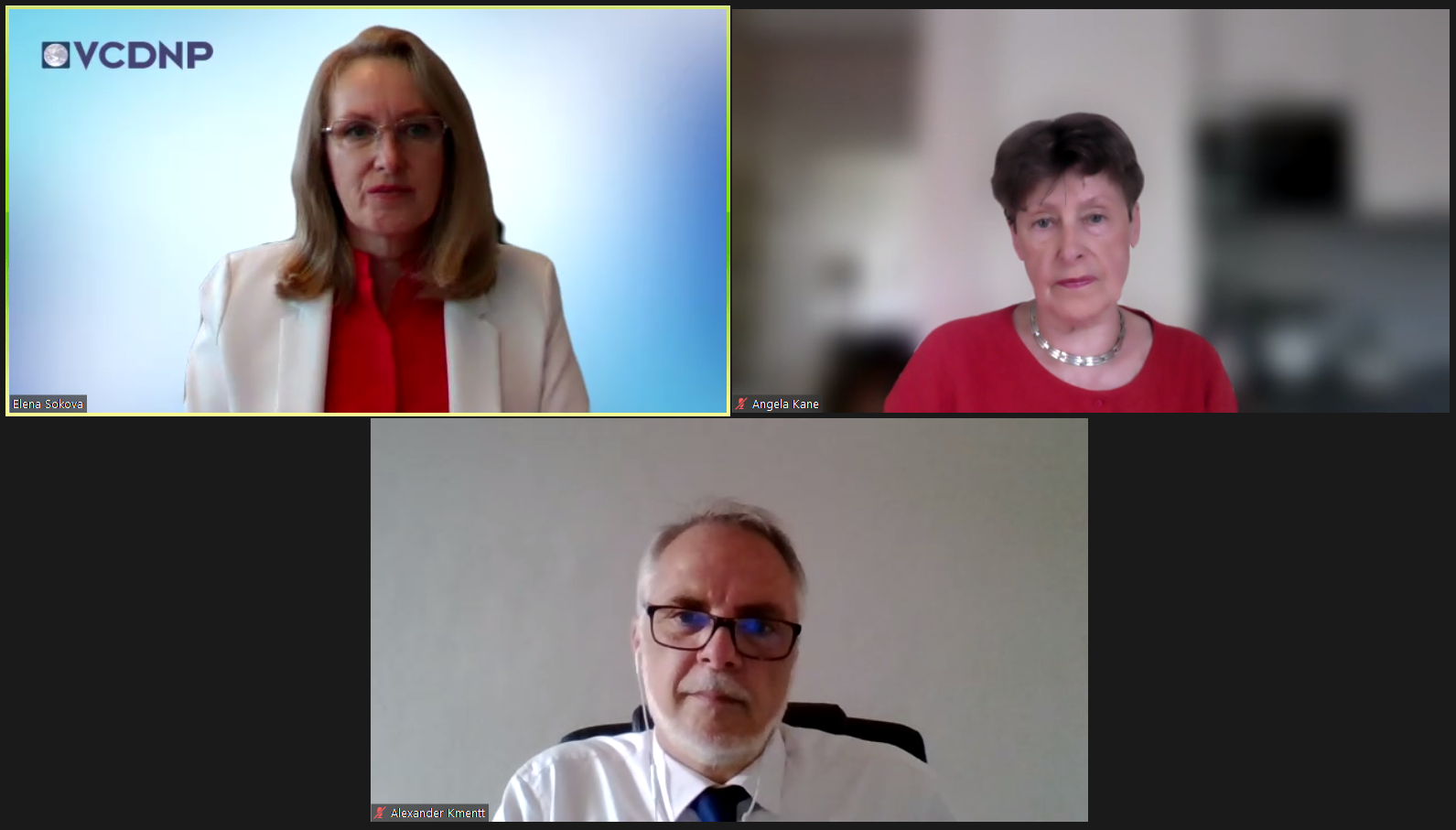
Introducing Ambassador Kmentt, Ms. Sokova highlighted his role as one of the architects of the Humanitarian Initiative that had led to the negotiation of the TPNW. He was therefore especially well placed to provide a personal account of the key events, major challenges encountered, and strategies employed to achieve the diplomatic success of crafting the new treaty. Ms. Sokova also reminded the audience that Ambassador Kmentt is the Chair-designate of the first Meeting of States Parties (MSP) of the TPNW, scheduled to take place in Vienna in January 2022.
In his remarks, Ambassador Kmentt focused in particular on Parts I and II of the book, which provide an insider account of the evolution of the Humanitarian Initiative and the work of a small, dedicated group of states, civil society activists, and academics to reframe the issue of nuclear weapons and disarmament as one centred on human security. Ambassador Kmentt recalled how the success of the 2010 Review Conference of the Treaty on the Non-Proliferation of Nuclear Weapons (NPT) in adopting the Action Plan and for the first time expressing concern about the humanitarian consequences of nuclear weapons use generated positive energy and expectation of progress on disarmament among the non-nuclear-weapon States (NNWS). However, the lack of such progress served as an additional impetus for the development of the Humanitarian Initiative and growing focus on humanitarian consequences as a central imperative for nuclear disarmament. He highlighted the role of Norway as one of the early leaders of the Humanitarian Initiative and Austria’s partner, along with Mexico, in pushing for the establishment of the 2013 Open-Ended Working Group (OEWG) on Taking Forward Multilateral Nuclear Disarmament Negotiations.
The book also discusses the challenges that the movement faced, including the opposition of the nuclear-weapon States (NWS), and the strategies that proved effective in overcoming the challenges and prompting a shift in the debates and positions of the majority of NNWS with regard to a legal prohibition of nuclear weapons. The strongly negative reaction of the NWS to both the Humanitarian Initiative and the OEWG and their early refusal to engage in conversation on the humanitarian consequences, Ambassador Kmentt argued, added energy to the movement and prompted greater mobilization among the NNWS. Humanitarian framing of nuclear weapons and the focus on the consequences and risks usually not widely discussed in diplomatic setting, such as the potential impact of nuclear detonations on climate and agriculture as well as past instances of near-use of nuclear weapons, resonated with many states, including those who may not have been traditionally active in international nuclear-related fora.
Parts III and IV of the book, Ambassador Kmentt explained, examine the arguments put forth by supporters and opponents of the TPNW and discuss the impact the treaty and the Humanitarian Initiative have already had on the nuclear weapons discourse as well as potential longer-term influence on the international non-proliferation regime. He concluded his remarks by emphasizing the importance of continuous engagement of states and other actors in dialogue on humanitarian consequences, notwithstanding the differences of views on the TPNW and its value.
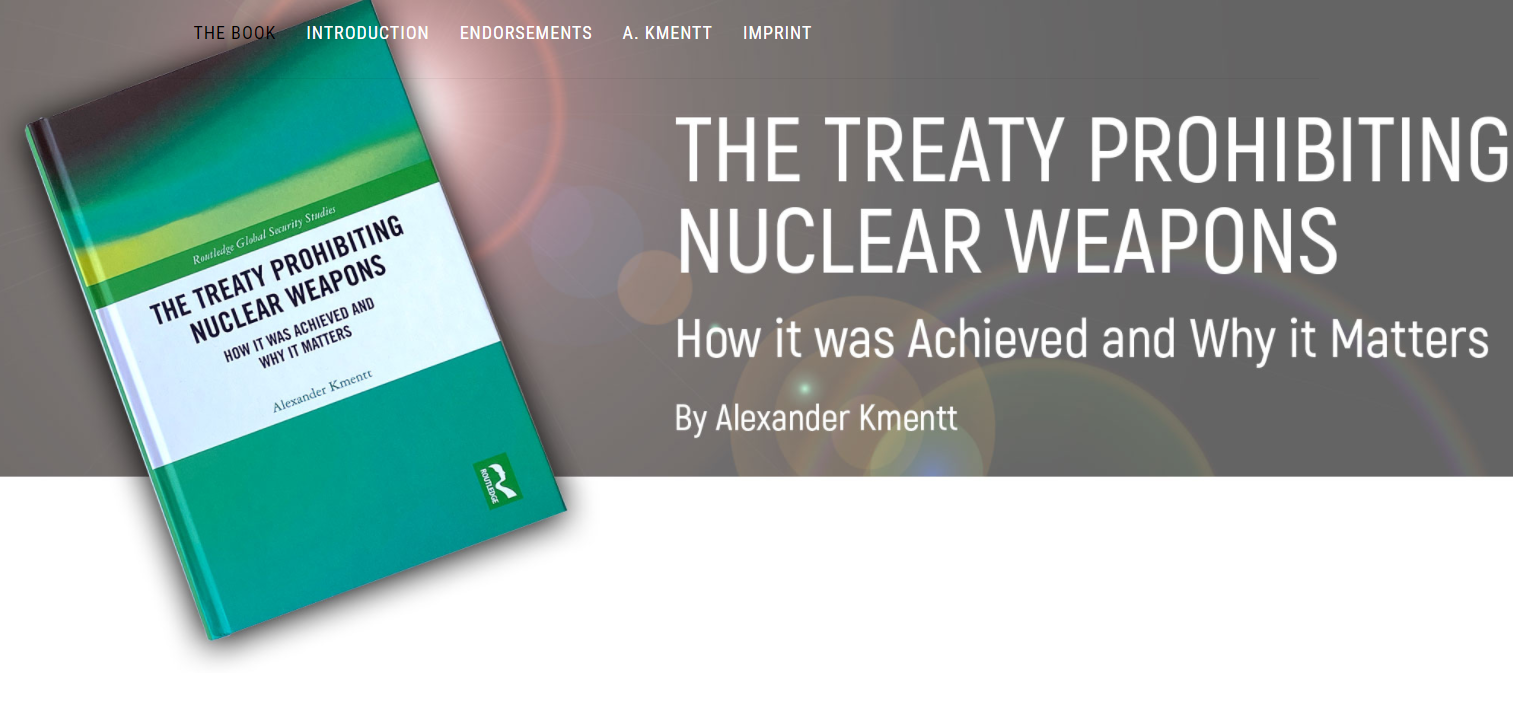
Following the presentation, Ms. Kane commented on the book and significance of the TPNW itself. She observed that the Humanitarian Initiative was successful because it employed a people-centred approach, and the focus on the humanitarian consequences transformed an abstract concept pertaining to “strategic stability” and nuclear weapons into a reality of their impact, capturing the imagination of the ordinary people. Active involvement of civil society and the youth enhanced the impact of the movement.
Ms. Kane highlighted the methodology applied by the author, which combines personal accounts of developments, the shifts in discourses and policies, the role of personal networks and collaboration among various groups, with in-depth research. She appreciated the detailed analysis presented in the book and meticulous sourcing, which makes it a particularly valuable resource for future research. Ms. Kane described the book as a primer on diplomacy for everyone interested in international negotiations.
In the final part of the webinar, the audience asked a variety of questions, including the relationship between the TPNW and other treaties, potential impact on the NPT and its review process, and the compatibility of States’ practices with the principles of international humanitarian law.
